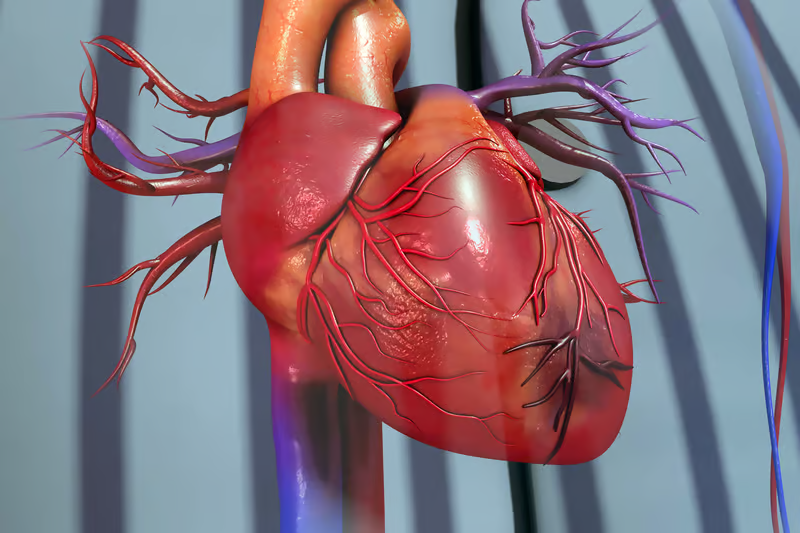A new study has discovered that men are more likely to be damaged after a heart attack than women, and that is the testosterone hormone. The researchers have also discovered a potential solution in the form of an existing drug.
According to RCO News Agency, The World Heart Federation, in its World Report Year 4, noted that for decades, heart disease has been a major cause of mortality around the world, and that number is still increasing. In high -income countries in year 2, the mortality rate of cardiovascular disease was higher in men than in women.
While previous studies have observed that men have larger and more destructive heart attacks than women, its mechanism has not been clear, according to Newnetlis. Now, new research led by the University of Gothenburg in Sweden has shown that when it comes to damaging a heart attack, testosterone hormone makes this gender difference.
“We have seen testosterone strengthening inflammatory response in male mice and leading to a wider heart damage,” said Asa Tiesten, a medical professor and a senior professor and author in charge of the study. Testosterone had a clear role in worsening inflammation after a heart attack.
The most common cause of heart attack is myocardial infarction (MI), where a coronary artery is blocked. Obstruction cuts off oxygen -rich blood into an area of the heart muscle and causes damaged muscle cells to die within minutes. The neutrophils, which are the front line white blood cells, are quickly released into a large number of bone marrow and are absorbed into the area and begin an inflammatory response to cleanse the residues of dead cells. The body’s response in the first few days determines the amount of muscle injury and thus the person’s recovery.
To better understand the reaction of men and women to a heart attack, the researchers blocked a coronary artery in male and female mice for 5 minutes to create acute myocardial infarction before returning the bloodstream to the affected area to stimulate the inflammatory response. Within 2 hours, male rats had more neutrophils in the blood than females and had larger areas of infarction or heart muscle damage. In addition, in 4 hours, the testosterone level in male rats was 5 times higher than females. In humans, male testosterone levels are typically more than 5 times higher than in women.
To confirm the effect of testosterone on neutrophil surfaces after myocardial infarction, researchers compared the castles with unpopular mice. As expected, castles after myocardial infarction had less testosterone levels.
However, within 4 hours, their blood neutrophilic levels were similar to female mice after myocardial infarction. The size of the infarction was also smaller in the male mice. When the mice were given a dose of testosterone, the blood level of the troponin I marker was more heart damage than the mice who did not receive the testosterone dose. Troponin I is a protein that exits the heart muscle cells during injury and is commonly used to determine the severity of myocardial infarction in humans.
In search of a way to reduce this inflammatory response caused by testosterone, the researchers examined the data of a clinical trial in which a drug for articular rheumatism called Tochilizumab, to patients who experienced their first acute myocardial infarction, became. Toilizomab belongs to a group of drugs called anti -rheumatic drugs. The drug blocks interlukin-1 receptors (IL-1), which is a signal protein that tells the immune system to activate after a heart attack and blocks the body’s inflammatory response. The researchers found that giving toylismomab before reconstructing reduces blood neutrophil levels and myocardial infarction size in men than women.
The study of the researchers shows how testosterone affects neutrophils through a mechanism that was previously unknown. These results show the importance of considering sexual differences in research and health care. If these differences are ignored, treatments may be less effective, especially for women who are often less present in studies.
The end of the message
(tagstotranslate) Heart attack (T) Impactus of myocardial (T) toylsomab
RCO NEWS














